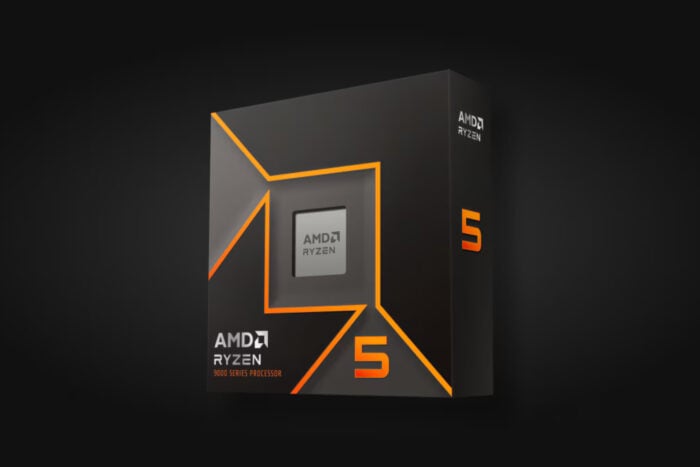According to first benchmark, AMD's Ryzen 5 9600X is slower than expected
This is just a synthetic benchmark
3 min. read
Published on
Read our disclosure page to find out how can you help Windows Report sustain the editorial team. Read more

It appears that the AMD Ryzen 5 9600X has been making a stir lately. It’s just 12% faster than the Ryzen 5 7600X in CPU-Z benchmark, slightly less than what AMD was bragging about at Computex – they said there would be an improvement of around 16% IPC improvements from one generation to another. But let’s not jump to conclusions just yet; there’s more to this story.
Should we trust the CPU-Z initial benchmark?
Initial reactions to the numbers might be slightly underwhelming, particularly as we were anticipating a larger jump. The Ryzen 5 9600X, featuring Zen 5 architecture, was presumed to serve as a mid-range wonder but results showcased via CPU-Z benchmark posted on X by HXL indicate only an average increase in performance compared to Ryzen 5 7600X.
We are talking about a 12.21% advantage in single-core and 12.30% advantage in multi-core tests here. Now, you might be thinking, Is that it? But hold on, there’s a twist.
The truth is, these CPUs are almost identical in terms of specifications. They have a six-core setup, 12 threads and nearly equal cache size. The only notable variations can be found in architectural alterations and slight modifications to clock speeds. The Ryzen 5 9600X, which can clock speeds up to 5.4GHz, is only slightly quicker than the 7600X with a maximum rate of 5.3GHz. Therefore, when you compare them this way, the performance increase becomes somewhat understandable.
However, the CPU-Z benchmark may not be displaying everything to us. It is only one examination and previously recognized for not functioning well with AMD’s Zen structure. AMD’s statement of a 16% IPC improvement is supported by real-world applications, not just one synthetic benchmark. This means that the Ryzen 5 9600X could possibly perform better in other scenarios. We still need to observe its performance across a wider range of tests and tasks.
There were indeed some results that were pushed to the limit with overclocking and they showed a somewhat different scene, but let us concentrate on performance as it comes from factory settings for this time being. After all, not everyone is comfortable pushing their hardware beyond its limits.
So, a 12% increase in performance is not bad if we look at the bigger picture. These CPUs are similar in many ways and this progress can be seen as a small step ahead, even though it may not meet all expectations. But who can say for certain? After a more detailed evaluation using various benchmarks, we may find ourselves quite pleased with the performance of Ryzen 5 9600X.
So, let’s not be too quick to dismiss the Ryzen 5 9600X just yet. It is still early in the process and we have a lot more to discover about this chip. We’ve learned about this from Tom’s Hardware.
Feel free to share your thoughts in the comments below.








User forum
0 messages